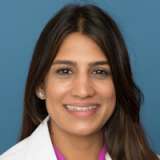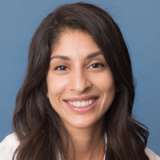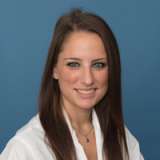Seed Grants 2020

Training in Small Bowel Capsule Endoscopy: Establishing a Curriculum and Assessing Competency in a Fellowship Training Program
Fellow: Ashwinee S. Condon, MD
Mentor/PI: Stephen Kim, MD
The primary aim of this study is to establish an evidence-based curriculum for training in capsule endoscopy for gastroenterology fellows at the University of California Los Angeles (UCLA). The secondary aims are to develop an assessment tool to evaluate competency in CE that can be implemented by gastroenterology training programs nationwide, and to evaluate this tool prospectively by analyzing fellow competency in capsule endoscopy during three consecutive years of gastroenterology fellowship training.

Assessing and Improving Pneumococcal Vaccination Rates in Patients with Inflammatory Bowel Disease (IBD) at UCLA
Fellow: Sonya Dasharathy, MD
Mentors: Jenny Sauk, MD; Folasade P. May, MD, PhD, MPhil; Berkeley Limketkai, MD, PhD
Patients with inflammatory bowel disease (IBD) are at increased risk for pneumonia and this risk is more prominent in patients on narcotics, corticosteroids, immunosuppressive medications and PPIs. In addition, IBD patients who are hospitalized for pneumonia have increased mortality. Based on the CDC guidelines published in 2012, vaccination with both the pneumococcal polysaccharide vaccine (PPSV23) and the pneumococcal conjugate vaccine (PCV13) is advised for IBD patients who are receiving immunosuppressive treatment. Previous studies have shown low pneumococcal vaccination rates among IBD patients (9-38%), yet few have assessed which specific vaccines are recommended and administered. We therefore seek to determine the pneumococcal vaccination recommendation and administration rates among IBD patients on immunosuppressive therapy and assess the barriers to vaccination by surveying GI providers, PCPs, and patients. With this information, we hope to develop an intervention to improve pneumococcal vaccination rates among IBD patients at UCLA who are on immunosuppressive therapy.

Neuromodulation with Percutaneous Electrical Nerve Field Stimulation for Adults with Irritable Bowel Syndrome: A Randomized, Double-Blind, Sham-Controlled Pilot
Fellow: Adrienne Lenhart, MD
Mentor/PI: Lin Chang, MD
Visceral hypersensitivity, autonomic nervous system dysfunction, and changes in brain-gut interactions are important concepts in the pathophysiology of irritable bowel syndrome (IBS). Despite recent advances in medical therapies for IBS, a significant subgroup of patients fails to experience satisfactory relief of abdominal pain. Given evidence of anti-inflammatory and anti-nociceptive components of vagal nerve pathways, peripheral field stimulation of the vagus nerve may help reduce visceral sensitivity in IBS patients. Percutaneous electrical nerve field stimulation (PENFS) administered via the IB-Stim device (Innovative Health Solutions, Versailles, IN, USA) has been shown to be efficacious in adolescent patients aged 11-18 years with abdominal-pain-related functional GI disorders. However, the efficacy of PENFS in adults with IBS is not unknown. Our current study is a double-blind, randomized, sham-controlled pilot study that aims to evaluate the efficacy of PENFS using the IB-Stim for the treatment of IBS symptoms in adult patients with IBS.

VSI-IBD: A Measure of GI-Symptom Specific Anxiety in IBD
Fellow: Sarah Park, MD
Mentor/PI: Lin Chang, MD

Determining Whether Retained Esophageal Contrast on Modified Barium Swallow Study Predicts Abnormal High-Resolution Esophageal Manometry
Fellow: Jeremy Wang, MD
Mentor/PI: Jeffrey L. Conklin, MD
Dysphagia is a frequently reported symptom, affecting up to 13 percent of the general population and leading to significant morbidity. Clinically, it is divided into oropharyngeal and esophageal causes to guide diagnostic evaluation. The modified barium swallow study (MBSS) is used to evaluate oropharyngeal dysphagia. The main limitation of the MBSS is the inability to assess for any significant esophageal dysfunction. At our institution, a brief fluoroscopic assessment for retained esophageal contrast is performed one minute after completion of the standard exam. A positive finding may indicate an underlying esophageal motility disorder. This study seeks to determine whether retained esophageal contrast on MBSS is associated with abnormal high-resolution esophageal manometry (HREM), classify the HREM findings according to the Chicago Classification v3.0, and hopefully develop a new protocol that incorporates an esophageal assessment into the standard MBSS exam.